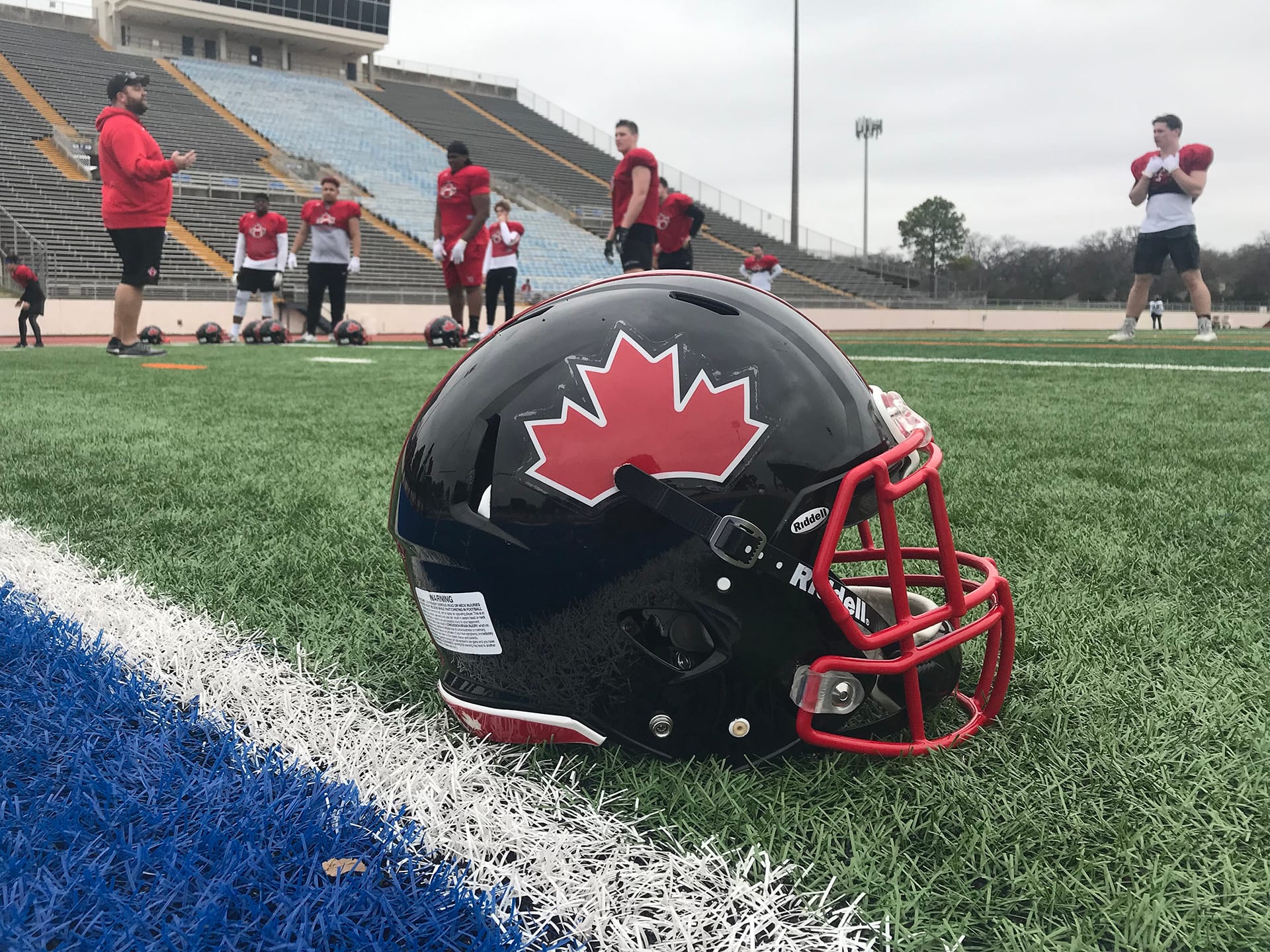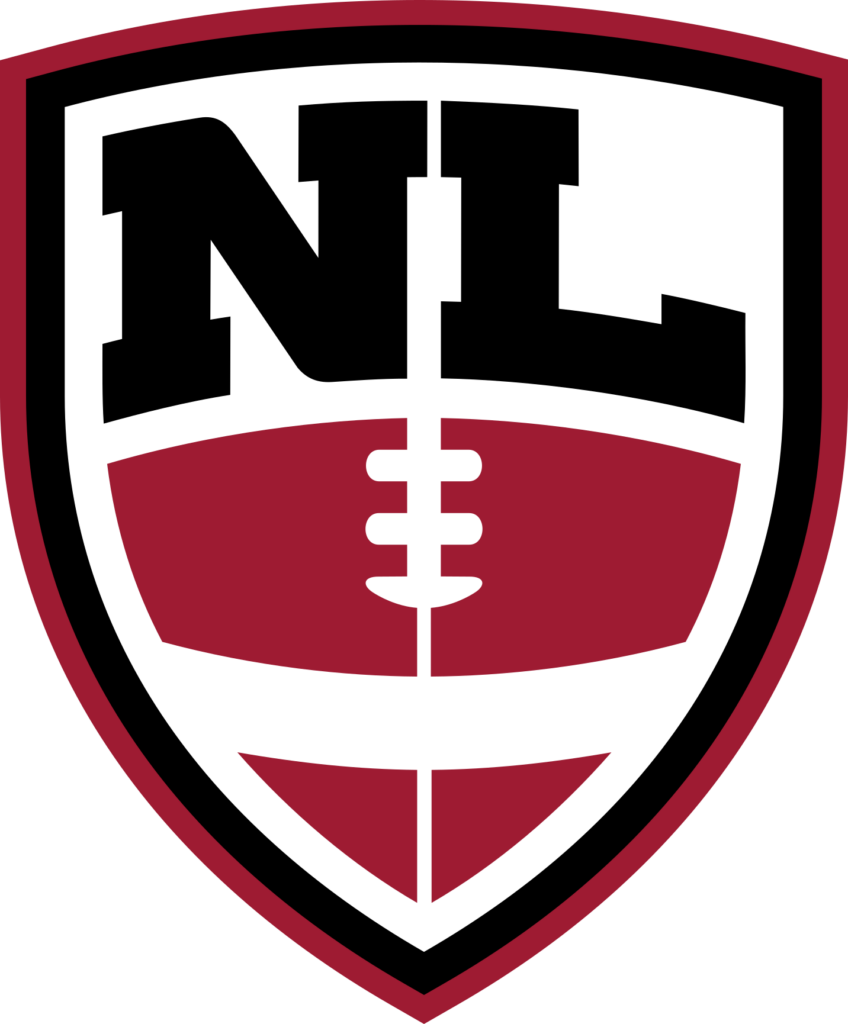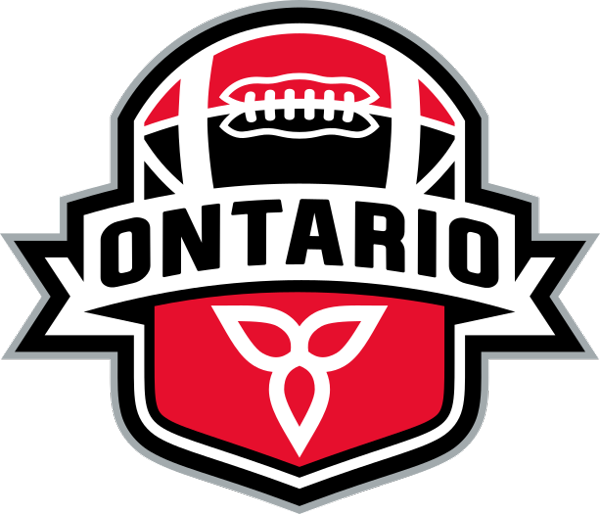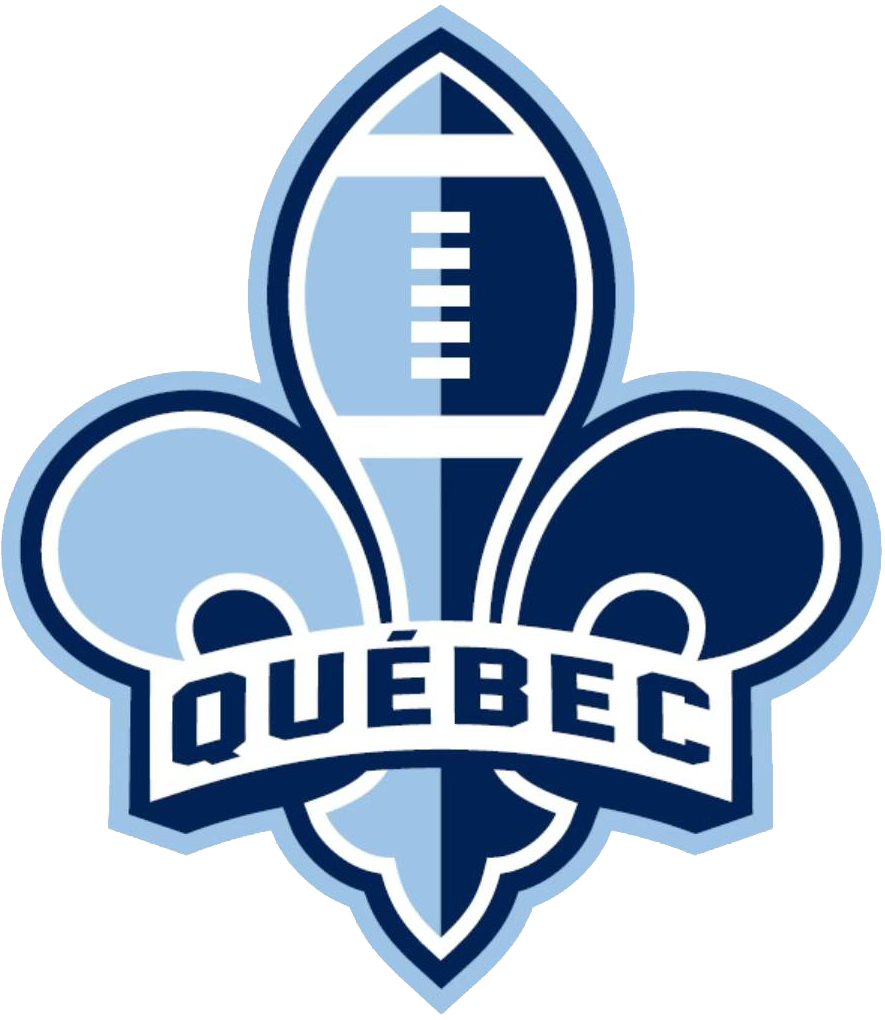
Equipment
Get the low down on ensuring your teams have the latest and safest equipment.
The following excerpts have been taken from Football Canada’s Purchasing and Maintaining Football Equipment handbook to assist managers of amateur football teams in purchasing, fitting, maintaining, storing and inventorying their football equipment and clothing. To obtain the handbook in its entirety contact Football Canada or your local Provincial Football Sport Organization.
Football Helmets
All new football helmets are certified to meet the performance standard set by the National Operating Committee for Sports Equipment (NOCSAE) when they leave the factory.
Those helmets which meet the NOCSAE standard must bear the seal, “Meets NOCSAE standards” and the logo for that type of helmet. The seal and logo are permanently branded or stamped on the outside rear portion of the helmet. All NOCSE-certified helmets also must have a standard warning label affixed to the inside and/or outside of the shell regarding safety and proper use of the helmet. Removal of any warning labels is against the regulations of the NOCSAE standard.
Recertification
Recertification is the process whereby previously certified helmets and other athletic equipment undergo testing to determine that the equipment continues to meet the original certification requirements. The recertification testing must occur as part of a reconditioning process because the sample helmets randomly selected for testing must be tested both before they are reconditioned and then tested again after they have been reconditioned. Members of the national Athletic Equipment Reconditioners Association (“NAERA”) are licensed by NOCSAE to recertify football, lacrosse, softball/baseball helmets, and face guards.
UPDATED Helmet standard as it relates to frequency: https://nocsae.org/players-parents-coaches/recertification/
New Recertification Requirements for Helmets Became Effective in January 2017.
Since January 2017, NOCSAE standard ND001 has required that the helmet manufacturer specify a recertification frequency in order to maintain the validity of the original new helmet certification.
Helmets not recertified during the stated interval shall no longer be certified. If the manufacturer does not specify a frequency for recertification, then NOCSAE will consider the frequency to be the same as whatever may be required by the manufacturer to maintain its warranty.
In Riddell’s case, the frequency to maintain NOCSAE Certification is every other year.
Consumers should be aware that manufacturers may choose to prohibit the recertification of a helmet model.
However, NOCSAE standards do mandate that if a manufacturer has obtained certification of compliance with NOCSAE standards for helmets and it prohibits the recertification of a helmet model, it must specify a useful life of the new helmet certification. The date label related to these requirements is to be permanent so there is no confusion as to when the helmet’s certification has expired. (See 9.5 under “Labeling and Instructions” in the NOCSAE Standard seen here). The useful life for this certification cannot be more than 5 years.
Helmets Manufactured Before January 2017
The National Athletic Equipment Reconditioners Association (NAERA) has announced that it will no longer accept football helmets for reconditioning and recertification which are more than 10-years old.
The 10-year cutoff will be determined by the manufacturer’s date. For example, at the end of the upcoming 2011 football season, any helmet dated 2002 or older will not be reconditioned/recertified.
NAERA is an association of 21 athletic equipment reconditioners and 4 helmet manufacturers who are licensed by the National Operating Committee for Sports Equipment (NOCSAE) to recertify helmets according to the NOCSAE standard.
Recertified helmets are identified by an appropriate NOCSAE seal affixed by the reconditioner inside the helmet: “This helmet has been RECERTIFIED according to the procedures established to meet the NOCSAE STANDARD.” Only reconditioners who have been licensed by the NOCSAE may affix the NOCSAE seal.
Source: https://nocsae.org/players-parents-coaches/recertification/
Visors
As per Rule 1, Section 11, Article 2 in the Football Canada Amateur Rulebook, “All visors must be clear, not tinted – No medical exceptions are allowed.”



